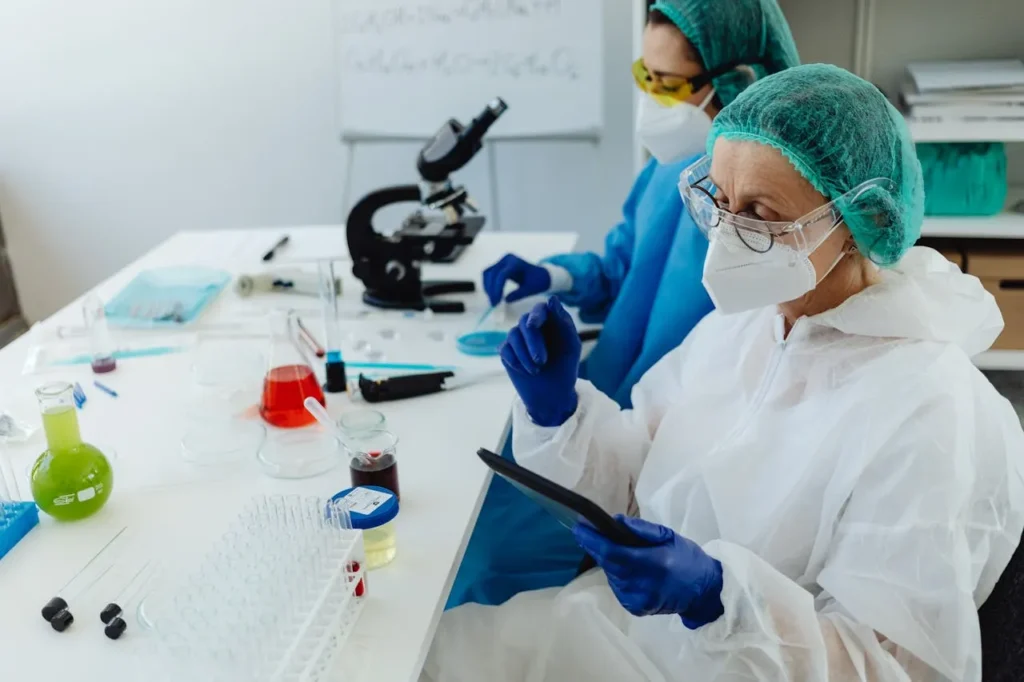
CytoAgents Completes Cohort 1 Dose-Escalation in Phase 1B Clinical Trial for Cytokine Release Syndrome Research
CytoAgents Inc., a clinical-stage biotechnology company at the forefront of developing therapies for immune-mediated disorders, has announced a significant milestone in its ongoing Phase 1b/2a clinical trial of CTO1681. The trial is designed to evaluate the investigational drug’s safety and efficacy in preventing and treating Cytokine Release Syndrome (CRS), a potentially life-threatening condition often induced by CAR T-cell therapy. The completion of the first dose cohort and the successful observation of the core cohort’s dose-limiting toxicity (DLT) period represent key advancements toward fulfilling the company’s mission of providing a safe and effective solution for patients at risk for CRS.
This pivotal progress was affirmed when CytoAgents’ Safety Review Committee (SRC) conducted a thorough review of the preliminary data and approved the escalation to the next higher planned dose in Cohort 2. CEO Teresa Whalen, RPh, expressed the company’s optimism and commitment to the continued development of CTO1681, stating, “This milestone marks an important step forward in our mission to deliver a safe, effective therapy for Cytokine Release Syndrome. We remain focused on advancing through the next stages of this trial and ultimately delivering a much-needed treatment option for patients facing this life-threatening immune response.”
The ongoing trial, which has been designated NCT05905328, is a multi-center, open-label, dose-escalation study. Its main objective is to assess the safety, tolerability, and preliminary efficacy of CTO1681 in patients with Diffuse Large B-Cell Lymphoma (DLBCL) who are undergoing CAR T-cell therapy—a promising but complex form of cancer treatment. Patients receiving CAR T-cell therapy are particularly vulnerable to CRS, a severe immune reaction that occurs when the body’s immune cells become overactive in response to the therapy, leading to high levels of cytokines in the bloodstream. This reaction can result in a wide range of symptoms, from fever and chills to life-threatening organ damage.
The first dose cohort in the trial included patients with DLBCL who were undergoing CAR T-cell therapy and are considered at high risk for developing CRS. According to the initial data, CTO1681 demonstrated a favorable safety profile in this group, with no dose-limiting toxicities (DLTs) or drug-related serious adverse events (SAEs) observed. Furthermore, no negative interactions with the CAR T-cell therapy were reported, suggesting that CTO1681 does not interfere with the therapeutic effects of the CAR T-cells. These findings are encouraging, given the complexity of managing CRS in cancer patients undergoing such advanced treatments.
Dr. Arthur P. Bertolino, MD, PhD, MBA, the Chief Medical Officer of CytoAgents, commented on the promising safety and early efficacy data. “The safety and early efficacy data from the first dose cohort are encouraging,” Dr. Bertolino remarked. “We look forward to evaluating the higher dose cohorts to further study the potential of CTO1681 to prevent and treat CRS, a very significant toxicity of CAR T-Cell Therapy.” The progress in this trial is seen as a critical step toward addressing the significant unmet medical need in the treatment of CRS, which remains a major complication of CAR T-cell therapy.
The trial follows a structured dose-escalation design, which is typical for early-stage clinical studies. By progressively increasing the dose of CTO1681, the investigators are able to closely monitor the drug’s safety profile and assess the pharmacokinetics, or the way the drug behaves within the body. The ultimate goal of the trial is to determine the Recommended Phase 2 Dose (RP2D), which will be used in subsequent phases of clinical testing.

The design of the trial also includes multiple cohorts, each receiving progressively higher doses of CTO1681. The dose-escalation strategy is an essential part of clinical research, as it helps to identify the optimal dose that balances efficacy with safety. The next steps in the trial will involve the evaluation of these higher dose cohorts, which are expected to provide more robust data on the drug’s ability to prevent and mitigate CRS.
CTO1681 represents a novel approach to treating CRS, a severe and often unpredictable reaction that occurs in a significant number of patients undergoing CAR T-cell therapy. CRS occurs when the body’s immune system is activated too aggressively, releasing large amounts of cytokines, which are signaling proteins that can cause widespread inflammation. In severe cases, CRS can lead to life-threatening complications such as organ failure, respiratory distress, and even death. As CAR T-cell therapy has emerged as a breakthrough treatment for certain types of blood cancers, the occurrence of CRS has become a major barrier to its widespread use.
The investigational drug CTO1681 is designed to intervene in this process, providing a preventive and therapeutic option for patients at risk for CRS. By targeting the underlying immune response, CTO1681 seeks to mitigate the symptoms of CRS, potentially improving the safety and overall efficacy of CAR T-cell therapy. This approach is especially critical given the increasing use of CAR T-cell therapies in treating cancers like DLBCL, which often do not respond to traditional treatments.
For CytoAgents, the ongoing Phase 1b/2a trial is a critical component of its strategy to bring CTO1681 to market. The company’s leadership team, led by CEO Teresa Whalen, is committed to ensuring that the drug can reach patients in need as quickly as possible. “We believe that CTO1681 has the potential to make a significant impact in the lives of patients undergoing CAR T-cell therapy. By addressing the critical challenge of CRS, we are working toward improving the overall treatment experience for these patients,” said Whalen.
In addition to the direct benefits for patients, successful development of CTO1681 could also have broader implications for the field of immunotherapy. CAR T-cell therapy has garnered significant attention in recent years due to its success in treating cancers that were previously deemed incurable. However, the risk of CRS remains one of the most significant obstacles to its broader use. By addressing this challenge, CTO1681 could help unlock the full potential of CAR T-cell therapy, allowing more patients to benefit from this life-saving treatment.
As the trial progresses, CytoAgents plans to continue its collaboration with leading medical institutions and research centers to further investigate the safety and efficacy of CTO1681. The company’s dedication to advancing the science of immunotherapy, combined with its focus on addressing urgent unmet medical needs, positions it as a key player in the biotechnology industry. If the results from the ongoing clinical trial continue to be positive, CTO1681 could eventually become an essential component of the treatment regimen for patients undergoing CAR T-cell therapy, revolutionizing the way CRS is managed.
In summary, the successful completion of the first dose cohort in CytoAgents’ Phase 1b/2a clinical trial for CTO1681 marks a major step forward in the company’s efforts to develop a safe and effective therapy for Cytokine Release Syndrome. With promising early data and a solid commitment to advancing through the next stages of the trial, CytoAgents is one step closer to addressing the critical unmet need for CRS treatments. The potential of CTO1681 to mitigate the risks of CRS could significantly enhance the safety of CAR T-cell therapy, benefiting patients and advancing the field of immunotherapy. As the trial continues, all eyes will be on CytoAgents and the results of this groundbreaking research.





